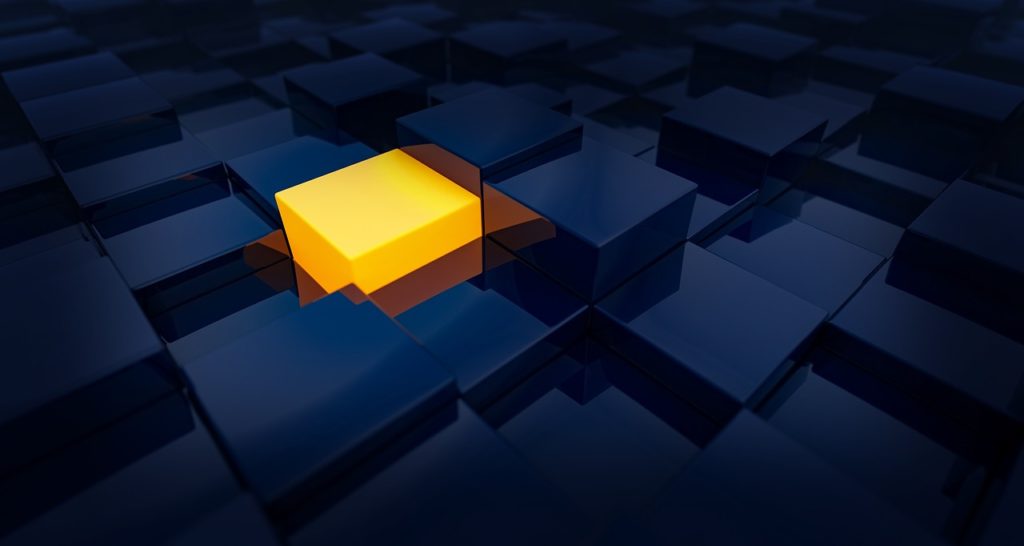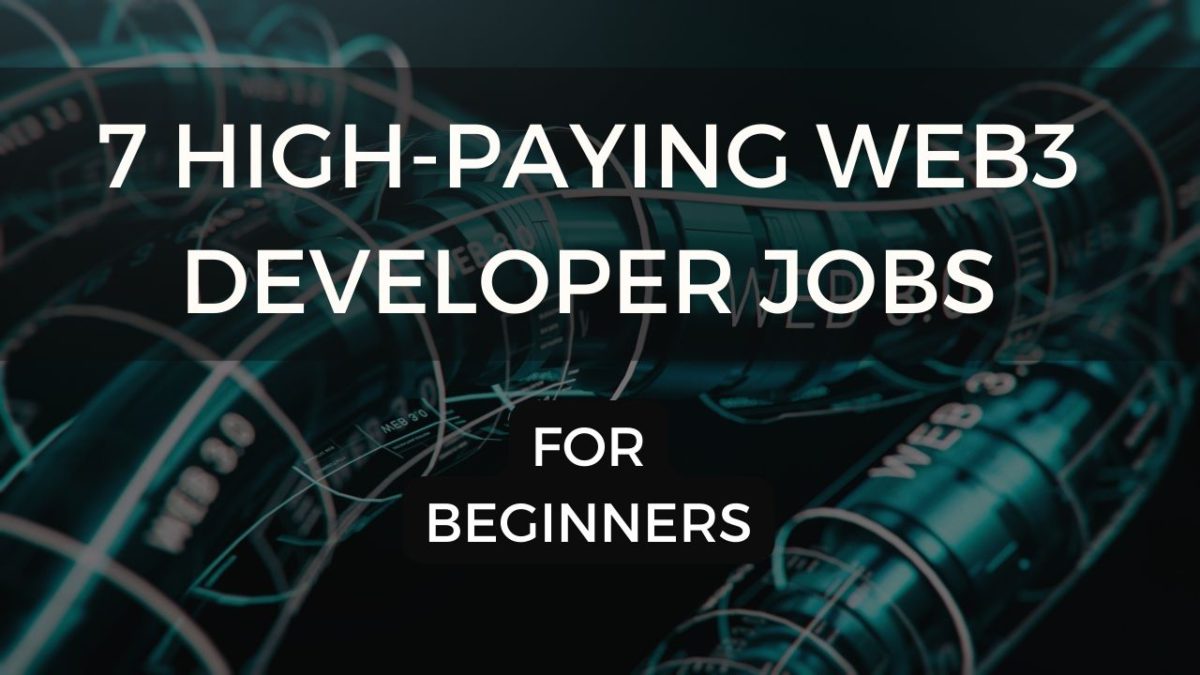Unlocking Your Future: How to Become a Blockchain Developer in 2025
Thinking about diving into blockchain? It’s a big field with a lot going on, but becoming a blockchain developer could be your ticket to a promising future. With more industries using blockchain, there’s a growing need for developers who know their stuff. This guide will help you figure out what skills you need, the best ways to learn, and how to get real-world experience. Whether you’re just starting out or looking to switch careers, this could be the change you’re looking for.
Key Takeaways
- Learn the basics of blockchain technology and how it’s different from traditional databases.
- Master essential programming languages and get a good grasp on cryptography and smart contracts.
- Decide between formal education or self-learning, and explore online courses and certifications.
- Gain hands-on experience through projects, hackathons, or internships.
- Stay updated with industry trends by joining communities and attending events.
Understanding Blockchain Technology
What is Blockchain?
Blockchain is like a digital notebook, but way cooler. It’s a decentralized system where transactions are recorded across a network of computers. Imagine a chain of blocks, where each block holds transaction data, a timestamp, and a unique code, known as a hash. This hash links each block to the previous one, making it super secure and tamper-proof. The beauty of blockchain is its transparency and security, as no single entity controls it. Instead, it’s maintained by a network of nodes working together.
Key Components of Blockchain
- Blocks: These are the individual records that store data. Each block contains a list of transactions, a timestamp, and a cryptographic hash of the previous block.
- Nodes: These are computers that participate in the blockchain network, validating and relaying transactions.
- Hash: A unique identifier for each block, ensuring its contents are secure and unchanged.
- Ledger: A digital record of all transactions that have occurred within the blockchain network.
How Blockchain Differs from Traditional Databases
Traditional databases are typically centralized, meaning a single entity controls the data. In contrast, blockchain is decentralized, distributing data across a network of computers. This difference provides several advantages:
- Security: Since data is spread across many nodes, it’s much harder for hackers to alter it.
- Transparency: Everyone on the network can view the transactions, fostering trust.
- Immutability: Once a transaction is recorded, it cannot be changed or deleted.
Blockchain technology is not just about cryptocurrencies. It’s a new way of structuring data that could change how we handle information across various sectors. This decentralized structure enhances transparency and security in data management, making it a game-changer for industries worldwide.
Essential Skills for Aspiring Blockchain Developers
Programming Languages to Master
To step into the world of blockchain, you gotta get cozy with some programming languages. Solidity is a big deal in this space, especially if you’re eyeing Ethereum and decentralized applications (DApps). JavaScript and Python are also in the mix, helping you build stuff that’s both solid and flexible. You might wanna dabble in Java too, just to cover your bases. These languages are your tools for crafting smart contracts and building the backbone of blockchain apps.
Understanding Cryptography and Security
Cryptography is like the secret sauce of blockchain. It’s what keeps everything safe and sound. You should know your way around hashing, digital signatures, and public-key cryptography. These aren’t just fancy terms; they’re the nuts and bolts of how transactions stay secure. Plus, understanding security protocols is key. You’ll be the one making sure data isn’t just floating around for anyone to grab.
Familiarity with Smart Contracts
Smart contracts are basically self-executing contracts with the terms of the agreement directly written into code. They’re a game changer in the blockchain world. Getting the hang of writing and deploying these contracts, especially on platforms like Ethereum, is crucial. You’ll need to ensure these contracts are bug-free and can handle real-world applications. They automate and streamline processes, making transactions and agreements quicker and more efficient.
Blockchain development is more than just coding; it’s about creating secure, efficient systems that can revolutionize industries. As you build your skillset, remember that each piece of knowledge adds to your ability to innovate and transform the way we interact with technology.
Educational Pathways to Blockchain Development
Formal Education vs. Self-Learning
When it comes to becoming a blockchain developer, there’s no one-size-fits-all path. Some folks swear by the traditional route of formal education, like getting a degree in computer science or information technology. These programs typically cover the basics of programming, cryptography, and distributed systems, which are all crucial for blockchain development. On the flip side, there’s the self-learning path where you dive into online resources, tutorials, and forums. The choice between formal education and self-learning really depends on your personal learning style and career goals.
Recommended Online Courses and Bootcamps
If you’re leaning towards self-learning, the internet is your best friend. Platforms like Coursera, Udemy, and LinkedIn Learning offer courses that range from blockchain basics to advanced smart contract development. These courses often include hands-on projects, which is a great way to learn by doing. Bootcamps are another option; they’re intense and focused, designed to get you job-ready in a short time. They can be a bit pricey, but many people find them worth the investment.
Certifications to Consider
Certifications can be a game-changer in proving your skills to potential employers. There are several blockchain certifications out there, like the IBM Blockchain Certification and Certified Blockchain Solution Architect (CBSA). These certifications show that you’ve got the chops to handle blockchain technology. While not mandatory, they can definitely give you an edge in the job market.
Tip: Whether you choose formal education or self-learning, staying updated with the latest trends and technologies in blockchain is key to success. The field is always evolving, so continuous learning is a must.
Gaining Practical Experience in Blockchain
Building Personal Projects
Jumping into personal projects is a fantastic way to learn. Start small. Maybe create a simple smart contract or a basic decentralized application (DApp). These projects let you experiment with code and understand the ins and outs of blockchain technology. Don’t be afraid to make mistakes; they’re part of the learning process. As you progress, try tackling more complex projects like integrating blockchain with web applications or developing a mini cryptocurrency.
Participating in Hackathons
Hackathons are like marathons for coders. They’re intense, fast-paced, and incredibly rewarding. Participating in these events helps you apply your skills in real-world scenarios. You’ll collaborate with others, solve problems on the fly, and maybe even win some prizes. Plus, hackathons are a great way to meet like-minded folks and industry veterans who can offer guidance and insights.
Internships and Real-World Applications
Internships can be your foot in the door to the blockchain world. They offer a structured environment to apply what you’ve learned while gaining valuable industry experience. Internships not only boost your resume but also help you understand the day-to-day workings of blockchain projects. Look for companies that are actively working on blockchain technology and apply for roles that match your skills and interests.
Real-world experience is crucial. It bridges the gap between theory and practice, allowing you to see how blockchain is used in various industries.
Exploring Career Opportunities in Blockchain
Industries Embracing Blockchain
Blockchain technology is not just a buzzword; it’s being actively adopted across a wide range of industries. From finance and healthcare to supply chain management and identity verification, the potential applications are vast. In finance, blockchain can streamline transactions, making them faster and more secure. Healthcare benefits from improved data management, while supply chains become more transparent. Identity verification processes are also enhanced, providing a more secure way to manage personal data.
Roles and Responsibilities of a Blockchain Developer
A Blockchain Developer is more than just a coder; they are architects of decentralized solutions. Their roles can vary from designing blockchain protocols and developing smart contracts to maintaining the architecture of blockchain systems. Responsibilities might include:
- Creating decentralized applications (DApps)
- Developing and testing smart contracts
- Implementing security measures to protect blockchain networks
Salary Expectations and Job Growth
The demand for blockchain developers is soaring, and with it, the salary expectations. On average, a blockchain developer in the United States can earn around $120,000 annually. This figure can vary based on experience, location, and specific skills. As more industries adopt blockchain technology, the job market for these developers is expected to grow, making it a promising career path.
Staying Updated with Blockchain Trends
Joining Blockchain Communities
Being part of a blockchain community is like having a front-row seat to the latest news and developments. These groups are buzzing with discussions on new projects, tech updates, and sometimes even job opportunities. You can join forums like Stack Overflow or Reddit, where people share insights and help each other out. It’s a great way to learn from others and maybe even contribute your own thoughts.
Attending Conferences and Workshops
Conferences and workshops are fantastic for keeping up with what’s happening in the blockchain world. They offer talks from industry leaders, panel discussions, and networking events. You can meet other professionals, share ideas, and maybe even find a mentor. Plus, these events often showcase the latest tech and trends, so you can see what’s new and exciting.
Following Influential Blockchain Experts
Following blockchain experts on social media or their blogs is a simple way to stay informed. These folks often share their thoughts on new developments, offer advice, and sometimes predict future trends. It’s like having a sneak peek into the minds of the people shaping the future of blockchain.
Staying updated with blockchain trends is not just about knowing the latest news. It’s about understanding how these changes can impact the industry and your role within it. With the 2025 FSOC report highlighting digital currencies as a potential source of financial instability, keeping informed is more crucial than ever for anyone involved in blockchain and digital assets.
Conclusion
So, there you have it. Becoming a blockchain developer in 2025 is no small feat, but it’s definitely doable if you’re up for the challenge. It’s all about diving into the basics, getting your hands dirty with some coding, and keeping up with the latest trends. Sure, it might seem a bit overwhelming at first, but remember, every expert was once a beginner. Keep learning, stay curious, and don’t be afraid to make mistakes along the way. Who knows? You might just find yourself at the forefront of the next big tech revolution. Good luck on your journey!
Frequently Asked Questions
How long does it take to become a blockchain developer?
The time it takes to become a blockchain developer can vary. For some, it might take a few months, while for others, it could take a year or more, depending on how much time you can dedicate to learning and your prior experience in technology.
Do I need a specific degree to become a blockchain developer?
While a degree in computer science or a related field can be helpful, it’s not strictly necessary. Many successful blockchain developers are self-taught or have learned through online courses and bootcamps.
Can I start a blockchain career without any experience?
Yes, you can start a blockchain career without prior experience. It requires dedication and a willingness to learn through self-study, projects, or internships.
What programming languages are important for blockchain development?
Languages like Solidity for smart contracts, as well as JavaScript, Python, and C++, are important for blockchain development.
Are certifications important for blockchain developers?
Certifications can enhance your resume and demonstrate your skills to potential employers, but they are not mandatory. Practical experience and a strong portfolio can also be very valuable.
How can I gain practical experience in blockchain?
You can gain practical experience by working on personal projects, participating in hackathons, or securing internships that allow you to apply your skills in real-world scenarios.
Stay informed with daily updates from Blockchain Magazine on Google News. Click here to follow us and mark as favorite: [Blockchain Magazine on Google News].
Get Blockchain Insights In Inbox
Stay ahead of the curve with expert analysis and market updates.
latest from tech
Disclaimer: Any post shared by a third-party agency are sponsored and Blockchain Magazine has no views on any such posts. The views and opinions expressed in this post are those of the clients and do not necessarily reflect the official policy or position of Blockchain Magazine. The information provided in this post is for informational purposes only and should not be considered as financial, investment, or professional advice. Blockchain Magazine does not endorse or promote any specific products, services, or companies mentioned in this posts. Readers are encouraged to conduct their own research and consult with a qualified professional before making any financial decisions. The featured image used is just a creative depiction of the title and it does not intend to hurt sentiments of any person or institution. If it hurts anyone sentiments, please do not hesitate to reach out to Blockchain Magazine.

 Bitcoin
Bitcoin  Ethereum
Ethereum  XRP
XRP  Tether
Tether  Solana
Solana  USDC
USDC  Dogecoin
Dogecoin  Cardano
Cardano  Lido Staked Ether
Lido Staked Ether  TRON
TRON  Wrapped Bitcoin
Wrapped Bitcoin  Wrapped stETH
Wrapped stETH  Chainlink
Chainlink  Avalanche
Avalanche  Sui
Sui  Stellar
Stellar  Litecoin
Litecoin  Toncoin
Toncoin  Shiba Inu
Shiba Inu  Hedera
Hedera  LEO Token
LEO Token  USDS
USDS  Hyperliquid
Hyperliquid  MANTRA
MANTRA  Polkadot
Polkadot  WETH
WETH  Bitcoin Cash
Bitcoin Cash  Bitget Token
Bitget Token  Ethena USDe
Ethena USDe  Wrapped eETH
Wrapped eETH  Uniswap
Uniswap  Monero
Monero  NEAR Protocol
NEAR Protocol  Pepe
Pepe  WhiteBIT Coin
WhiteBIT Coin  Aave
Aave  Ondo
Ondo  Bittensor
Bittensor  Aptos
Aptos  Internet Computer
Internet Computer  Dai
Dai  Official Trump
Official Trump  Ethereum Classic
Ethereum Classic  Mantle
Mantle  Tokenize Xchange
Tokenize Xchange  OKB
OKB  Gate
Gate  sUSDS
sUSDS  Coinbase Wrapped BTC
Coinbase Wrapped BTC 






